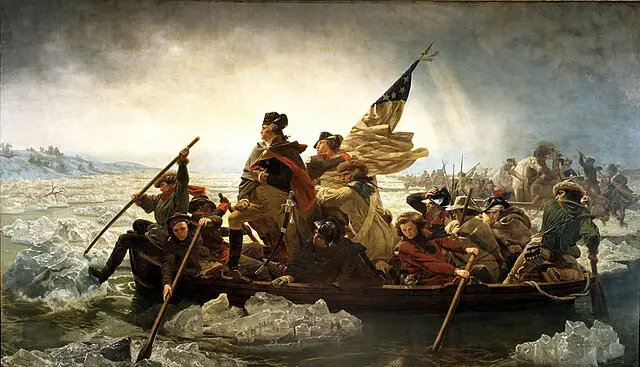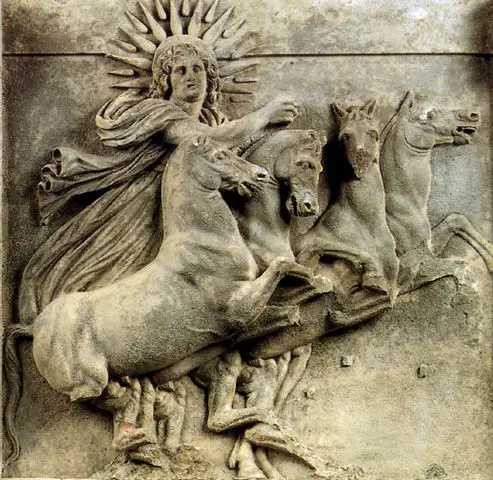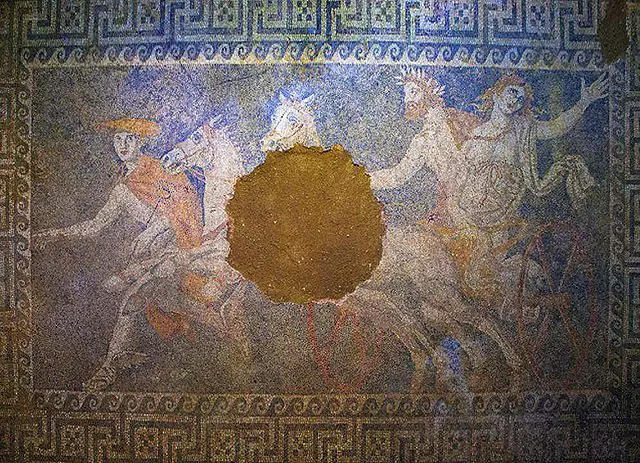| Born | 10th century AD |
| Died | 10th century AD (rumored 984 AD) |
| Famous For | Preserving knowledge of the west, Mixing Arabic knowledge with Latin. |
| Region of world | 10th century Arabic Spain (Al-Andalus) |
Few people in the world know of one of the most important women in history…Lubna of Cordoba. Her impact upon the preservation of knowledge during the ‘dark ages’ is vital to understanding history.
Simply put, Lubna of Cordoba was a personal scribe of the caliph of Cordoba, Al-Hakam II. She was given the task of creating an Arabic library at the palace of Medina Azahara to house over 500,000 books of both Arabic and Latin origins.
Lubna of Cordoba created this library during the ‘dark ages’ , a time period in Latin history where ancient knowledge of history, architecture, engineering, science, and mathematics was lost.
This article demonstrates how vital Lubna of Cordoba was to the West’s history. Without her and her impact it would be hard to imagine that our contemporary history would be the same.
Here at The History Ace I strive to publish the best history articles on the web. If you like content like this feel free to share around and subscribe to our newsletter to remain up to date on all things history.
Without further ado, here is why Lubna of Cordoba had a massive impact upon history.
Western Knowledge ‘Lost’ During The Dark Ages
Before we can discuss Lubna of Cordoba it is important to demonstrate how vital she was to the preservation of knowledge during the ‘dark ages.’
The ‘dark ages’ was a time period during western historiography when knowledge gathered during the ancient world was believed to be lost.
This lost knowledge included authors such as Livy, Aristotle, Plato, and Cicero. Knowledge of how plumbing worked, how to build a temple, and art were also believed to be lost forever.
Contemporary historians know that this was not the case. Rather the academics of the ‘dark ages’ were more preoccupied with other forms of knowledge such as theology.
Christian priests and monks created countless copies of ancient knowledge that went unread on shelves in monasteries around the Latin west.
However, not everything was saved. A lot of the work regarding mathematics, astronomy, and science was unfortunately, in the west, lost.
This knowledge would have been lost forever if it was not for the Arabic world’s copies. During the dark ages one Arabic kingdom in Spain was experiencing a ‘golden age.’
Al-Andalus In The 10th Century
Now, let’s place Lubna of Cordoba in her time period of 10th century Spanish Al-Andalus.
While Europe was experiencing a ‘dark age’ the Arabic kingdom of Al-Andalus in Spain was exploding in wealth, literature, and knowledge.
The reason for this ‘golden age’ of Al Andalus was because of the preservation of the ancient knowledge lost in the west. This included ancient Greek knowledge of irrigation for farming which sparked the Arab Agricultural Revolution and allowed for massive cities.
However the real ‘gem’ of Al Andalus was the library of Cordoba with its 500,000 size volume of books, by far the largest in the world for the time.
Arabic academics from the far east would travel to Cordoba just to study the ancient texts. This created a transmission of ideas across the Arabic world that fueled the rise of living standards.
Further, this knowledge would eventually transmit back to the west and start what is called the ‘renaissance’ time period of ‘re-discovery’ of the ancient texts.
This would not have been possible if not for the efforts of Lubna of Cordoba.
How Lubna Of Cordoba Changed History Forever
Lubna of Cordoba was put in charge of translating the ancient texts from Greek to Arabic so that they could be housed in the Library of Cordoba.
Initially Lubna was a slave girl who overtime would rise to becoming the Caliph’s personal secretary. The act of a slave rising through society to a high rank was possible in Arabic cultures.
Lubna of Cordoba was an extremely gifted intellectual. She would become one of the best mathematicians in Cordoba along with writing amazing poetry. However it is her translating and copying ability which she is best remembered by.
Over the course of her life Lubna of Cordoba would help to create the library Medina Azahara by helping to translate over 500,000 books from all over the world. This library during the 10th century was one of the most important places on earth due to the amount of knowledge it housed.
The books that Lubna of Cordoba helped to translate became the backbone of the revival of knowledge in the west during the 14th and 15th century, or what is now called “The Renaissance.”
This revival of knowledge in the 14th/15th century was caused by Lubna of Cordoba’s translations eventually finding their way to Italy.
Simply put, Lubna of Cordoba primed the world for the renaissance. Without her people such as Michelangelo and Leonardo da Vinci might not have had the same effect.
This is why Lubna of Cordoba’s impact changed history. She is responsible for the preservation of knowledge from the ancients to the modern day.
Today when we interact with art or science we can thank Lubna of Cordoba for her impact upon the world. At first she was a slave girl who through hard work became one of the most important women throughout history.
Conclusion
There you have it; an entire article on Lubna of Cordoba’s impact upon history. Articles like this one are hard because there are so few sources to go on. Even the primary Arabic sources are hard to interact with.
For any potential graduate students of history Lubna of Cordoba is an amazing person to study. Her poetry and impact upon the world has not been fully understood. As such she remains an enigmatic figure to this day.
Here at The History Ace I strive to publish the best history articles on the internet. If you like content like this then feel free to share around and subscribe to the free newsletter.
Further, you can check out some of the other articles below.
-
How The American Revolution Changed The World

Here is how the American Revolution changed the world. Many people are not aware of just how important this event actually was.
-
Why The Roman People Loved Chariot Racing

Why did the Roman people love chariot racing? Well it all comes down to these 3 reasons.
-
The Design and Color of Roman Chariots

What was the design and color of Roman Chariots? Were they faster or slower then normal chariots? Well here is everything!
Until next time,
Nick